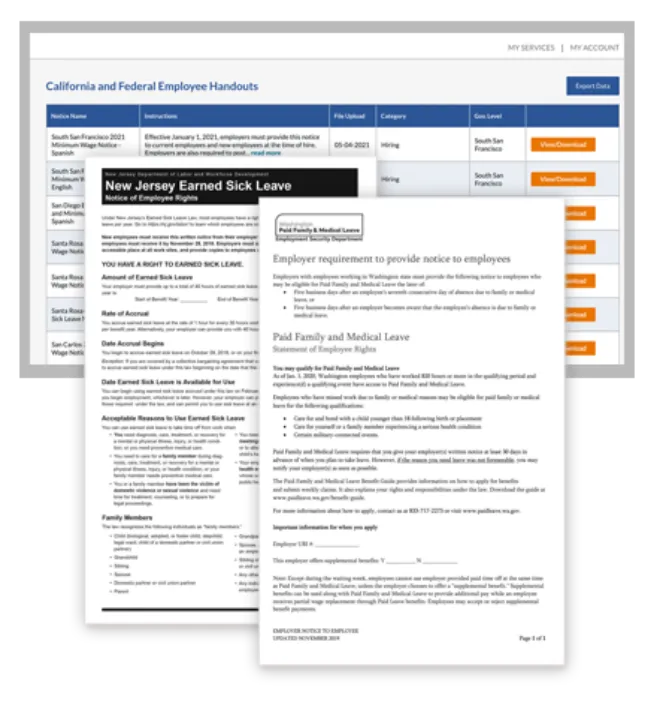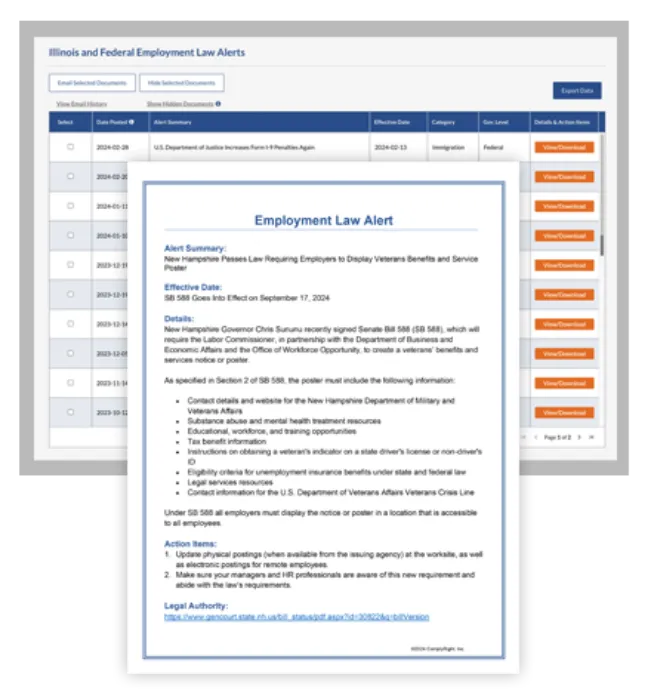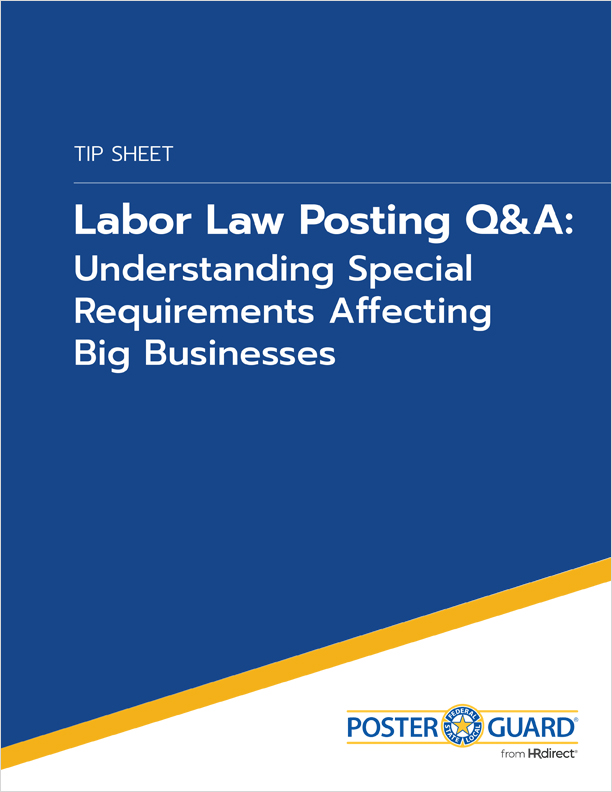If you rely on your workers’ comp insurance provider for labor law posters, you could be setting your organization up for a costly mistake. Many carriers offer a few basic notices at no cost, but they don’t cover the full range of federal, state and local requirements. That gap exposes businesses to significant poster compliance risks and fines — including government penalties and increased legal liability.
Read MoreRemote work isn’t going away. Even as some teams return onsite, hybrid arrangements have become a permanent part of the workplace. This shift brings new compliance responsibilities, particularly around ensuring consistent access to labor law postings for all employees, regardless of location.
Read MoreKeeping up with workplace compliance isn’t just a responsibility for HR — it’s a shared effort across every level of management. While most employers know labor law posters are required, many underestimate how vital it is for managers to understand the details.
Read MoreLillian Chavez, Esq., who heads the expert legal team behind Poster Guard Plus™ , answers a variety of questions about the complex laws surrounding the Family and Medical Leave Act (FMLA).
Read MoreFor PEOs, compliance isn’t a sideline responsibility — it’s central to client trust and retention. With labor laws changing constantly, clients spanning multiple jurisdictions and hybrid work creating new layers of complexity, even the most capable teams face mounting pressure to stay ahead.







